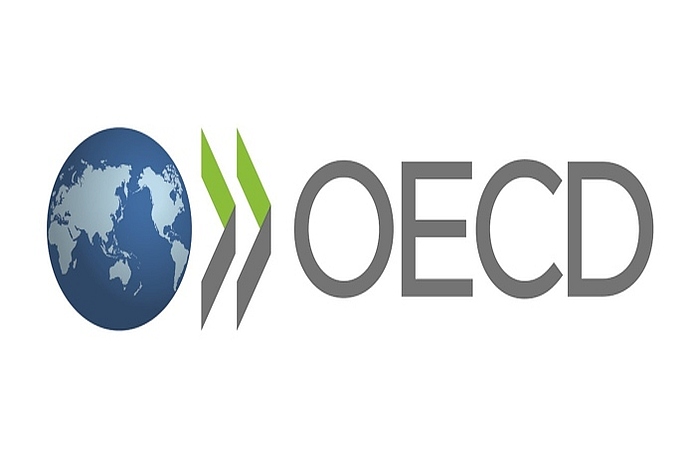By Caribbean News Global ![]()
TORONTO, Canada – In the case of the Czech Republic and Poland according to a new OECD report, “ the Czech economy has been hit hard by the COVID-19 crisis and will only recover slowly. Once support to firms and workers has restored stability, the focus should be on stimulating investment and productivity growth and addressing other long-term challenges,” meantime “Poland has suffered milder economic losses from COVID-19 than many other countries, yet the crisis still risks aggravating inequalities and reversing gains in living standards. Focusing reforms and investment on building a greener and more inclusive economy with better quality jobs will help to secure a strong and sustainable recovery.”

Czech Republic
The latest OECD Economic Survey of the Czech Republic says that with bankruptcies and job losses expected to rise, the government should stand ready to provide further support until a recovery is fully under way, then actively help those who have lost jobs to find new ones. Job retention schemes can then be gradually phased out. Finding ways to swiftly resolve bankruptcies, improve retraining for jobseekers, and bring more women into the labour market would help to restore productivity and growth. A key challenge will be to keep supporting viable firms and jobs while allowing for resource reallocation across sectors.
“This crisis has interrupted a period of strong economic growth in the Czech Republic and an impressive convergence towards average OECD income levels. After effectively containing the first wave, the country is now battling the consequences of a second wave. Uncertainty is high and growth will only resume slowly,” said OECD secretary-general Angel Gurría, presenting the Survey at a virtual launch with prime minister Andrej Babiš. “The challenge now is to bring about a recovery that is inclusive, sustainable and resilient to future shocks.”
The Survey projects Czech GDP dropping 6.8 percent in 2020 then recovering by 1.5 percent in 2021 and 3.3 percent in 2022, but GDP will stay below pre-crisis levels over the next two years.
Czech workers retire earlier than the OECD average, and a rapidly ageing population will weigh on employment rates and growth over time while driving up age-related spending. Tax revenue relies heavily on contributions from labour, which is not good for job creation, and the self-employed enjoy tax advantages that result in low social security contributions and potential pension shortfalls. Generous cash benefits and limited childcare also discourage women with young children from returning to work.
Recommendations in the Survey include better targeting R&D support to young firms, reducing the cost, red tape and time required to start a business and promoting green investment. The Survey also suggests expanding the provision of childcare and progressively raising the retirement age in line with life expectancy gains.
On the tax front, the Survey recommends reducing tax advantages for the self-employed and shifting more of the tax burden towards real estate, consumption and environment-related taxation. Raising taxes on carbon would help to decrease the economy’s reliance on coal and other fossil fuels, while improving quality of life by helping to reduce greenhouse emissions and air pollution.
Poland
The latest OECD Economic Survey of Poland says that while swift government support has cushioned firms and households from the worst of the economic shock so far, the pace of recovery from the pandemic is uncertain and the recession could have more protracted consequences. In particular, the crisis has disproportionately affected weaker regions, small firms and disadvantaged workers. It also accentuated pre-existing challenges such as Poland’s ability to finance long-term pension and health spending and to overcome barriers to growth for small businesses.
“Poland will likely exit the COVID-19 crisis with fewer scars than many other countries thanks to the strength of its economy going into the crisis and its swift response with containment and support measures when the pandemic struck,” said OECD secretary-general Angel Gurría. “Yet reforms to tackle long-standing challenges are now even more essential if Poland is to get back to the pace of gains in living standards seen in recent years.”
The Survey recommends ramping up investment in the digital economy and adult training, and making it easier for Poland’s numerous small and medium-sized enterprises (SMEs) to grow nationally and internationally so they can generate better quality jobs. Bringing forward public investment in low-carbon energy and infrastructure could give a boost to the recovery while helping to lower greenhouse emissions and air pollution. Tax reforms could also support the recovery, in particular measures to lower taxes on low-skilled workers and ease tax compliance for smaller firms.
The Survey recommends that Poland find ways to support SMEs, which often have low productivity, little resilience or flexibility in the face of shocks like COVID-19, and difficulties, even in normal times, to provide high-paid, good-quality jobs. Improving the business environment, for example by reducing tax and regulatory burdens, would help SMEs to prosper and expand internationally.





